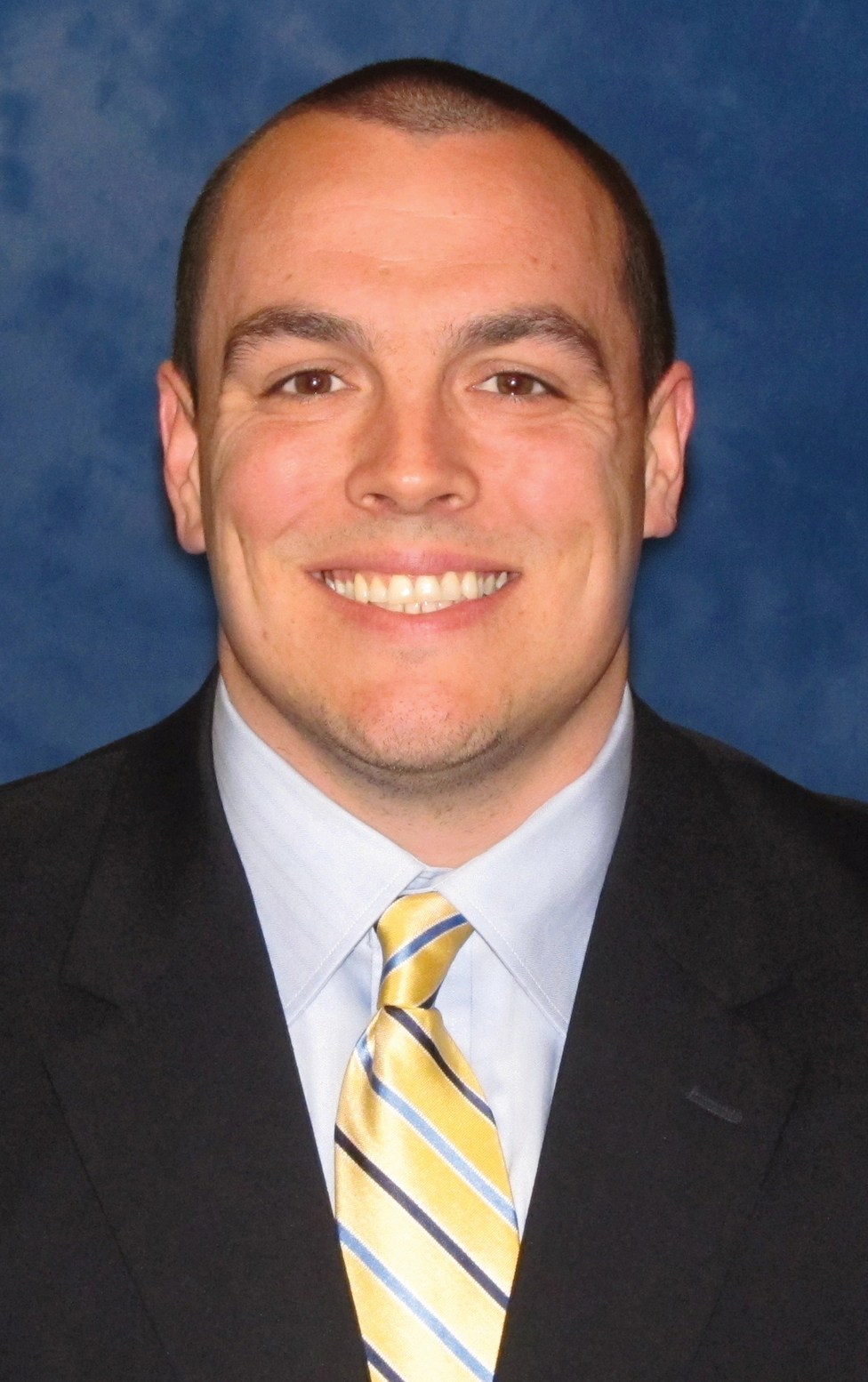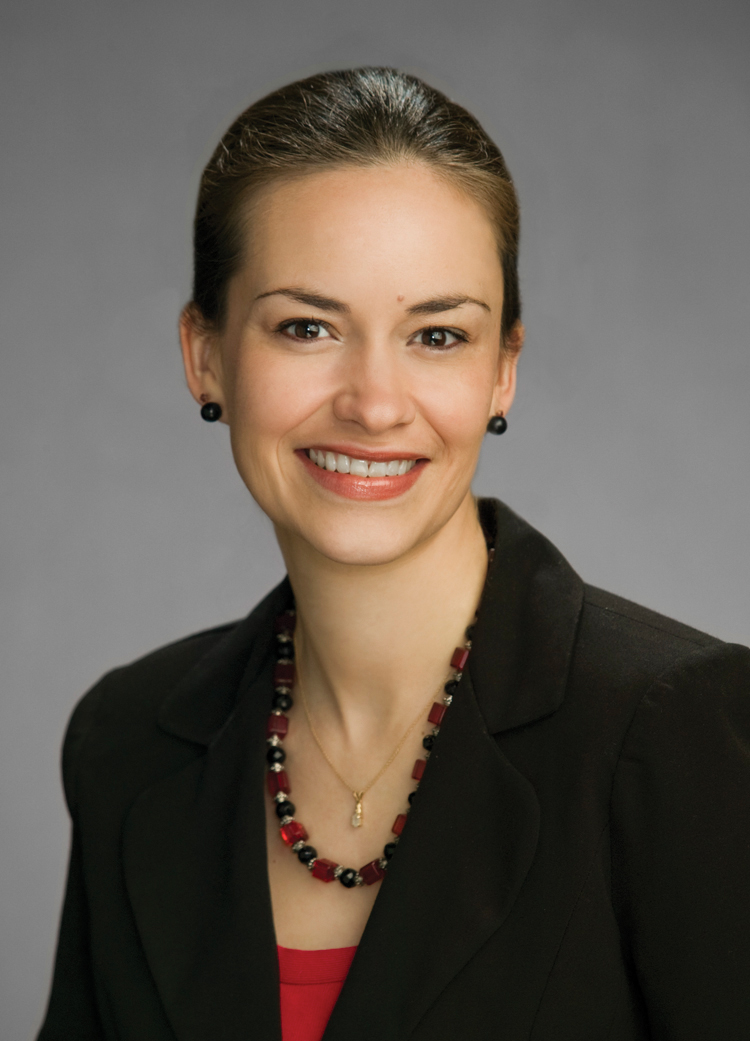 Interviewed by Michelle Hundley
Interviewed by Michelle Hundley
In this month’s young professional profile, we sat down with Evan Thoman, manager, Employee Wellness and Fitness Services for NASA’s Johnson Space Center. Evan is responsible for policy guidance, program oversight and new innovations and initiatives for leading the Starport wellness program and fitness services for all members of the JSC community.
Have you always been interested in fitness?
Absolutely! Growing up, I always participated in different sports activities and I was always attracted to the physical aspects of sports. In fact, after high school, I knew I wanted to go to college to study Exercise Science. In college, I spent a lot of time volunteering, reading, and acquiring certifications to one day become a collegiate strength and conditioning coach.
What about “wellness” – is that the same thing or different?
I actually became interested in wellness in graduate school while I was a graduate assistant for the Marshall University Department of Campus Recreation. It was then, that my eyes were opened to the complete spectrum of health and wellness. Wellness includes social, emotional, financial and even occupational wellbeing. There is so much more to “being well” than just physical fitness.
There are more companies today that are focused on sustainability, including a focus on employees and their needs. Have you found this new business environment supportive of your efforts?
Yes! I believe businesses have realized that having a wellness program is good for the employee, period. But, it also makes good business sense.
My first introduction into this new environment came while working as the Health and Fitness director for the YMCA. I managed my first employee wellness program for approximately 90 Highmark Blue Cross Blue Shield employees at their Charleston, W. Va., location. It was there that I had the opportunity to work with a different kind of athlete. These weren’t your “typical” athletes, you know, those that you envision when you hear the term “athlete.” These were 50-year-old males with multiple risk factors and soccer moms. But to me, these were my new athletes. Honestly, I got more satisfaction out of their success stories than out of any small part I played in anything the college athletes I worked with accomplished.
I really grew there, and learned about the importance and value that an employee wellness program can have on a company. I quickly realized that was what I wanted to do. From that moment on, it was full steam ahead. I next became responsible for the planning, design, implementation, delivery and evaluation of a comprehensive corporate wellness program for over 7,000 employees at the Charleston Area Medical Center.
My entire approach was about having boots on the ground and communicating the importance of wellness to each and every employee.
I really enjoy being in the trenches with my athletes, and it’s the same approach that I take in my career today. Learning from them and listening to them; in some ways I’ve become their mentor, someone they can turn to when they need to overcome a challenge. It’s an honor and a privilege; and I take their trust in me very seriously.
What led you to Johnson Space Center?
As mentioned already, employee wellness makes great business sense; and in my last position, that was what drove our organization’s programming. Don’t get me wrong, my team and I made such great progress toward improving the overall culture of health, but I was applying to work with some of the smartest people on the planet! I mean, wow! It’s NASA!
Having the opportunity to relocate to Texas and work with NASA was never something that I could have imagined I would ever be doing. But I took a risk and applied for the position when it became available. After meeting with the JSC team, it was clear they shared my same beliefs about employee wellness.
You mention it was a risk to apply for this position…
Yes, but it was a calculated risk. If an opportunity presents itself, and you feel you are ready and believe that you can make a positive impact on the organization, why not take it?
Does risk taking play a role in what you do daily?
First of all, I work with real rocket scientists here, they are really smart. So, I often have to think through how I want to present health and wellness information to them. I have learned the best way here is to talk about risk aversion rather than risk taking.
Here, we are trying to eliminate or manage health risk factors so our employees can live a happier, healthier, more productive life. Quite simply, I have found using scare tactics as it relates to improving your health doesn’t work. It’s not enough to say, “If you don’t work out, your risk of having a heart attack within the next 10 years increases dramatically.” They already know that, and they’ve even probably already calculated that risk. But, if I say, “Let’s talk about what we can do now, so when you go home in the evening, you still have the energy left to play with your kids.” I get more attention and people are more willing to listen. They are even willing to take the risk to try something new, which here is a big deal, because there is ambivalence to change. So, watching them take a risk to try something new and make impactful lifestyle modifications – well, it’s very rewarding to watch.
What’s your advice for someone who wants to improve their fitness and pay more attention to their personal wellness?
I don’t want to sound cliché [laughs]. But, it really is a lifestyle choice. You have to have a plan; create SMART (Specific, Measurable, Achievable, Realistic, and Time-bound) goals to work towards. There is no quick fix. Reach out and form a support network. Reach out to your friends, family, even co-workers to not only support you, but hold you accountable for reaching your goals. It won’t be easy, but with your support network, and with some dedication, you will reach your goals.
For more on Johnson Space Center’s wellness program: https://starport.jsc.nasa.gov/
For more on Evan: https://www.linkedin.com/in/
For more on the Interviewer: https://www.linkedin.com/in/
 Interview by Traci Koenig
Interview by Traci Koenig


